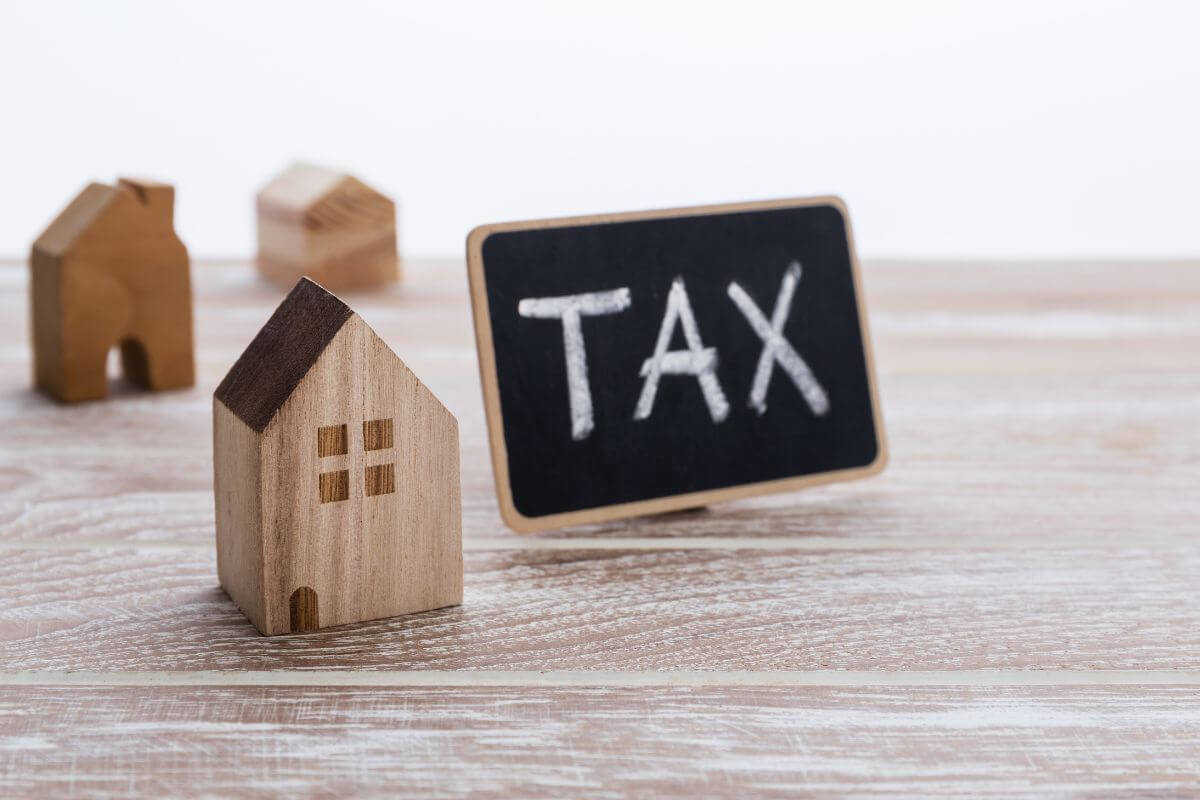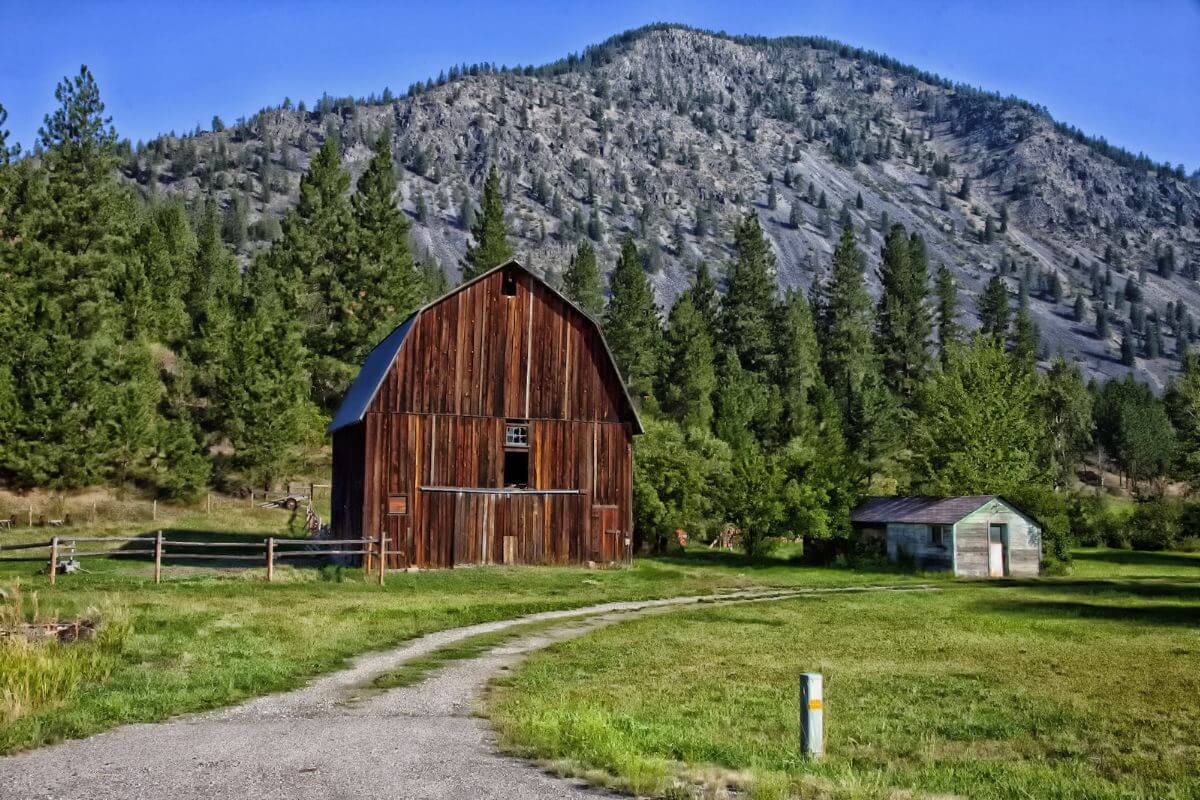Does Montana have sales tax? It’s a head-scratcher that piqued my curiosity, and it seems to be a burning question for many people in search of a tax haven.
Picture this, you’re making a big purchase or going on a shopping spree, and the last thing you want is to be hit with hefty taxes. Am I right? Well, fret not, because I’ve got the answers you need.
In this article, I’ll unravel the mystery surrounding Montana’s tax situation, revealing whether this state imposes sales tax or takes a different approach.
So, if you’re eager to learn about tax rates, exemptions, and how the lack of sales tax can impact your shopping experience, buckle up and join me on this tax adventure.
- Related article: What Is Montana Life Like
Get ready for some tax exploration in the wild, wild west of Montana!
Understanding the Montana Tax Landscape

The tax landscape in Montana is quite diverse, with various taxes imposed at the state level to fund government operations and services.
First and foremost, Montana’s tax system is ranked 5th overall on the 2023 State Business Tax Climate Index, indicating its relative tax friendliness for businesses.
So, whether you’re an individual or a business owner, it’s essential to be aware of the different tax categories that may apply to you.
Below is a comprehensive breakdown of the distinct tax categories in Montana:
- Individual Income Taxes- This tax is imposed on the income earned by individuals. Montana has a progressive income tax system with multiple tax brackets, income taxes increase as your income rises.
- Business Taxes –This category includes various taxes that businesses operating in Montana may be subject to, such as corporate income tax and various fees related to business registration and licenses.
- Alcoholic Beverage Taxes – Montana imposes taxes on the trade and distribution of alcoholic beverages, which can include beer, wine, and spirits. The tax rates can vary depending on the beverage.
- Natural Resource Taxes – Montana taxes resource extraction of coal, oil, gas, and minerals, boosting revenue and mirroring their economic value.
- Miscellaneous Taxes and Fees – This category includes smaller situational taxes and fees like lodging facility use tax, accommodations tax, and specific vehicle-related fees.
- Withholding Tax – Withholding tax is the tax that employers deduct from their employee’s wages and remit to the state on their behalf. It ensures that individuals meet their tax obligations throughout the year.
- Tobacco and Nicotine Taxes – Montana taxes nicotine and tobacco items like cigarettes, cigars, and smokeless tobacco with dual goals: deterring usage and generating state revenue.
Montana Imposes No Sales Tax

Montana stands as a realm without sales tax, a distinctive trait that holds significance for its residents.
This tax is a fee applied to the sale, rental, or leasing of various goods and services, while a sale refers to the purchase for personal use, not for resale in regular business activities.
This means that when you make a purchase in Montana, you won’t have to worry about that pesky tax hiding in the shadows, nibbling away at your hard-earned cash.
While Montana may be free from sales tax, it does have other taxes in place. For instance, there is a 6% hotel tax that applies to room rentals in establishments like hotels, motels, or lodging houses.
These taxes are collected by retailers and vendors, who shoulder the responsibility of gathering taxes from customers and promptly remitting them to the state.
It’s a delicate dance, but one that ensures the wheels of Montana’s economy keep turning. Notably, counties and special districts have the authority to levy local income taxes in some U.S. states.
Many states have sales tax holidays at various times of the year.
During these periods, consumers are usually exempted from paying taxes on items like disaster preparedness goods, clothing, school supplies, and other items they buy during this time.
Montana’s main source of revenue for the state is the income tax, whereas property tax serves as the primary funding mechanism for local government and individual school districts.
Consequently, local governments and school districts in Montana heavily depend on property taxes and state assistance.
Now, as we explore the landscape of tax policies, let me share with you a list of 4 other states that join Montana in the exclusive club of no sales tax.
4 Other U.S. States States With No Sales Tax
- Alaska – No statewide sales tax, but local areas may impose up to 6%. Local taxes on fish, hotels, liquor, and tobacco. No individual income state tax, but local taxes apply.
- Delaware – No state sales tax; businesses pay gross receipts tax. Varied rates based on business activity. Moderate individual income tax (up to 6.6%) and 8.7% corporate tax.
- New Hampshire – Neither state nor local sales taxes. Excise taxes on specific goods and services. Flat 5% individual income tax, and a 7.60% corporate tax.
- Oregon – No state-wide sales tax, but local sales taxes exist. Local sales tax in certain cities. No state or local sales tax; income tax up to 9.90% and 6.60-7.60% corporate tax.
Different state’s sales tax rates can be viewed on the Department of Revenue website.
Advantages of Montana’s Lack of Sales Tax

Montana’s lack of a sales tax offers several benefits that can influence consumer behavior, attract tourists and businesses, and simplify financial transactions.
Nevertheless, it’s crucial to weigh these benefits against the state’s revenue framework and budgetary requisites.
Some benefits resulting from Montana’s lack of a sales tax include:
- Consumer Savings – No sales tax in Montana translates to lower prices for consumers, resulting in long-term savings for residents which is also a reason for Montana’s living affordability.
- Tourism and Business Attraction – No sales tax in Montana can lure shoppers and tourists from neighboring high-tax states, boosting tourism and border-area business growth.
- Simplicity in Transactions – Consumers are spared the need to calculate or monitor extra expenses during purchases, streamlining transactions and enhancing the shopping process.
- Competitive Advantage for Businesses – The absence of sales tax can serve as a distinctive selling point for businesses, especially in specific sectors and for substantial transactions.
- Reduced Administrative Burden – Businesses are relieved from collecting and remitting sales taxes, cutting down on administrative burdens and paperwork for both enterprises and government bodies.
- Local Shopping Support – Residents might be more likely to support local businesses due to the absence of sales tax, which could help strengthen local economies and communities.
- Consumer Retention – With lower prices due to no sales tax, residents might be less likely to travel out of state to make purchases, helping to keep consumer spending within the state.
- Simplified Tax System – Not having to manage a sales tax system simplifies the tax code and administration for the state government, potentially reducing complexity and the associated costs.
- Consumer Decision-Making – Consumers may make decisions based solely on their preferences and needs without factoring in the cost of sales tax, leading to more purchasing choices.
Disadvantages of Montana’s Lack of Sales Tax

Montana’s lack of a sales tax may seem like a dream come true for shoppers and businesses, but it comes with its fair share of disadvantages.
Without the revenue generated from sales tax, the state faces challenges in generating enough funds for essential infrastructure, education, healthcare, and public services.
The state must carefully consider alternative methods to address these disadvantages and ensure equitable taxation for all residents.
Disadvantages resulting from the absence of a sales tax in Montana:
- Budget Constraints – The absence of sales tax revenue can restrict the state’s ability to invest in essential infrastructure, education, healthcare, and public services.
- Dependency on Property Tax – Montana heavily depends on property taxes for funding, which might burden property owners and lead to inequalities.
- Impact on Lower-Income Individuals – Without a sales tax, Montana might need alternative methods to address income inequality and ensure equitable taxation for all residents.
- Missed Economic Opportunities – Sales taxes can spur spending and enhance local economies. Montana’s lack of a sales tax might lead to missed chances for economic growth.
- Uneven Distribution of Tax Burden – The absence of a sales tax shifts more of the tax burden onto income and property taxes. This could result in certain groups or sectors carrying a heavier tax load.
- Limited Local Control – The lack of a sales tax reduces local governments’ capacity to generate independent revenue. They heavily rely on state funding, which could limit their autonomy.
- Potential for Structural Imbalance – Depending heavily on income and property taxes while avoiding sales taxes could create a structural imbalance in the state’s tax system, impacting revenue stability.
Montana Sales Tax Final Thoughts

Not having a sales tax means that consumers don’t have to factor in pesky sales tax calculations when making purchases. This can be appealing and may even attract visitors to the state.
However, the absence of a sales tax in Montana also means that the burden of funding crucial programs falls heavily on personal income tax and personal property tax.
This can create inequalities, especially for property owners who may bear a disproportionate tax load. Additionally, the lack of a sales tax can hinder economic growth opportunities.
Sales taxes not only drive spending but also stimulate local economies. Without this tax, the state might miss out on chances for growth, particularly in sectors like retail and tourism.
Moreover, the absence of a sales tax limits the local government’s ability to generate independent revenue, creating imbalance and hindering their capacity to address local priorities and economic shifts.
While the lack of a sales tax in Montana may seem appealing at first glance, it’s important to consider the broader implications.
The reliance on income and property taxes can result in an uneven distribution of the tax burden. It’s crucial to strike a balance and ensure that the tax system is fair and sustainable for all Montanans.
Montana Sales Tax FAQs
1. What Is a Sales Tax?
Sales tax is a type of tax on buying and selling things, where you pay a small amount of money when you make a purchase.
This tax is connected to taxes on the value added to products, fees on imports and exports, and taxes on specific goods. Overall, it’s a tax on what people use or consume.
2. What if I Buy Items in Another State to Resell in Montana?
if you purchase items in a state with sales tax to resell in Montana, consider whether you can get a sales tax exemption or a refund for the sales tax paid in the other state.
This would require you to provide a resale certificate or other relevant documentation to the seller, using the Montana Business Registry Resale Certificate.
3. What’s the Amount of Sales Tax for Vehicle Purchases in Montana?
When buying a car in Montana, you won’t need to be concerned about spending money on sales tax for your purchase.
Alongside the payment for the car, it’s important to consider the costs associated with registration, title transfer, and license plate fees.
4. What U.S. State Has the Highest Combined Sales Tax Rate?
As of June 2022, according to the Tax Foundation, Louisiana holds the top spot for the highest combined sales tax rate at 9.55%. In second place is Tennessee, with a combined sales tax rate of 9.547%.
On the other end of the spectrum, Alaska boasts the lowest combined sales tax rate, coming in at just 1.76%.
To quench your fascination with Montana and gain deeper insights, stay connected and explore these captivating articles:

